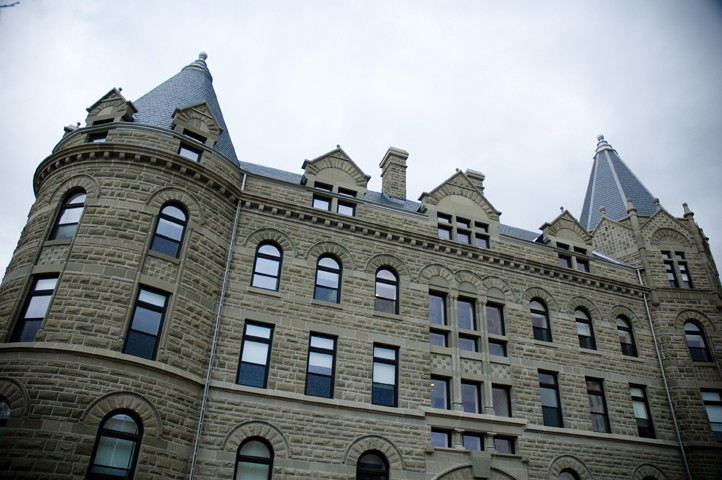UWSA pushes province for more funding
Asks for 10 per cent increase, dedicated funding for faculty
In a recent consultation with the Council on Post-Secondary Education (COPSE) to determine next year’s funding for the university, University of Winnipeg Students’ Association vice-president advocate David EisBrenner voiced funding concerns on behalf of University of Winnipeg students. In the proposal, EisBrenner advocated for dedicated and increased funding for the U of W.
The most immediate funding concern EisBrenner raised was for the salaries and benefits of faculty and staff. He asked the government to dedicate funds specifically for faculty and staff so concessions don’t have to be made in the future.
“The thing that has really helped the U of W stand apart is the quality of the professors and the staff,” he said. “I think if we lose that we are going to lose a very important part of the U of W.”
Mike Emslie, controller and executive director of financial services for the U of W, agreed with EisBrenner.
“It is absolutely necessary that we pay our staff competitively so that we attract and attain the best, and our ability to do so is really a function of our revenue sources,” Emslie said, adding that the largest revenue source is the provincial government grant.
COPSE, a provincial agency responsible for the allocation of government funds to Manitoba’s post-secondary institutions, hears annual requests for funding from each institution. COPSE then puts forth a proposal to the provincial government, which decides the amount of funds allotted for the year.
EisBrenner also asked for dedicated funding for operational costs of new buildings. He proposed creating a sustainability requirement that would require institutions to show the government detailed plans for covering operating costs before development grants are approved.
EisBrenner said this would ensure the new developments would have a line of funding in place to draw from when completed.
Dan Smith, manager of policy development and analysis for COPSE, said that while EisBrenner’s proposal for securing funds makes sense, it isn’t likely to happen.
“Typically governments don’t like to commit themselves beyond the next fiscal year,” he said.
EisBrenner also requested a more secure form of multi-year funding. He said since the university’s revenue depends on tuition fees linked to enrolment, a 10 per cent increase in yearly funding from the government is crucial.
“We can’t base our funding formula on numbers that fluctuate year to year,” he said, adding that enrolment is expected to decrease in the coming years. “What we are needing ... is for the government to step up and continue with a healthy amount of funding.”
Smith said since 1999 the provincial government has increased funding for the U of W by 80.1 per cent.
“We have given them more money, so there is an aspect of management here,” he said.
But Emslie said compared to other provinces, Manitoba is below average in terms of provincial grants for post-secondary education.
Though the budget process is still underway, Smith said the funding requests of all the institutions cannot be fully met.
“There are forever more demands in the system than there are resources,” he said. “And that is just the nature of the beast.”
Published in Volume 64, Number 8 of The Uniter (October 22, 2009)







